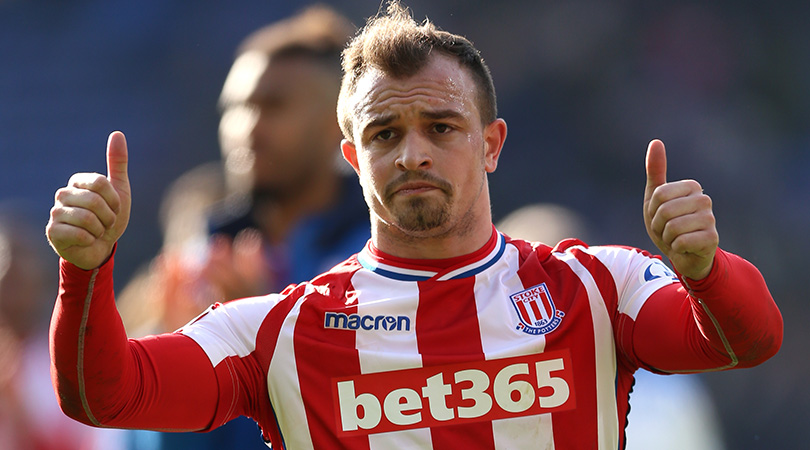Can we actually tell how good Garry Monk is yet?
The Swansea boss has been tipped as a future England manager. Alex Hess warns that such predictions may be premature...
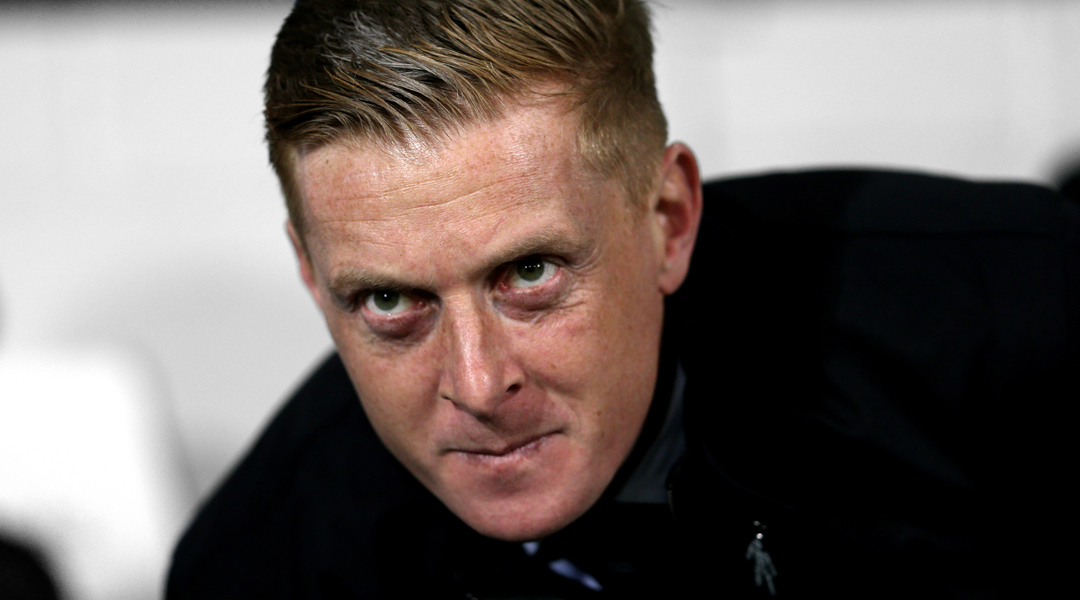
Britain is a country with rather rigid customs, especially where popularity is concerned. So just as an eye-catching stint in the Big Brother house tends to lead, with grim inevitability, to semi-naked indignities in the I’m A Celebrity… jungle, so there follows an unavoidable corollary for any Englishman who enjoys a good stint in a Premier League dugout.
As Garry Monk is the latest to discover, it’s not long before the whispers begin. “I think he can one day become England manager, because he’s got all the abilities. There’s no reason why he can’t be in the future.” That was the view last week of one of Monk’s players, Jonjo Shelvey. For once, though, no one was accusing Shelvey of rashness. Indeed, his words made plenty of sense.
The exuberant start to the season made by Monk’s Swansea City side has seen strong results claimed from Manchester United and Chelsea, the style of football delivering in both aesthetics and excitement. To concurrently earn points and enchant punters is no easy double act, even for the most well-resourced clubs – just ask Louis van Gaal – and Monk’s current high flying is not to be underestimated.
The former centre-back is more than simply flavour of the month, and Shelvey’s tentative touting of his boss for the England job is a view endorsed by at least one broadsheet columnist in recent days. His good work has been going on for 18 months now – long enough for any regression to have already occurred – and anyone doubting his credentials need only have witnessed Swansea’s surgical destruction of United last weekend, replete with decisive tactical tinkering from Monk (“they changed their shape and we couldn't cope,” was the verdict of Van Gaal, who knows a smart rejig when he sees it).
Considered and innovative
Whereas the likes of Pulis, Pardew and Sherwood greet the cameras like a latter-years Al Pacino, making sure to forge personas of the tub-thumping, alpha male variety, Monk seems more studied
Monk is just 36 but he stands apart from his British peers in nature as well as age. Whereas the likes of Pulis, Pardew and Sherwood greet the cameras like a latter-years Al Pacino, making sure to forge personas of the tub-thumping, alpha male variety, Monk seems more studied. The interview with him in Michael Calvin’s Living on the Volcano gives the impression of a considered man whose instinct is to innovate and for whom a player's greatest gift is initiative (“I'm trying to weed out the ones who can't think,” he says). His age is better belied in his taste for gadgetry: NordBoards, sleep pods and drone-mounted cameras may sound like the inventory from the set of Blade Runner, but they’re in fact staples of pre-season training at Swansea.
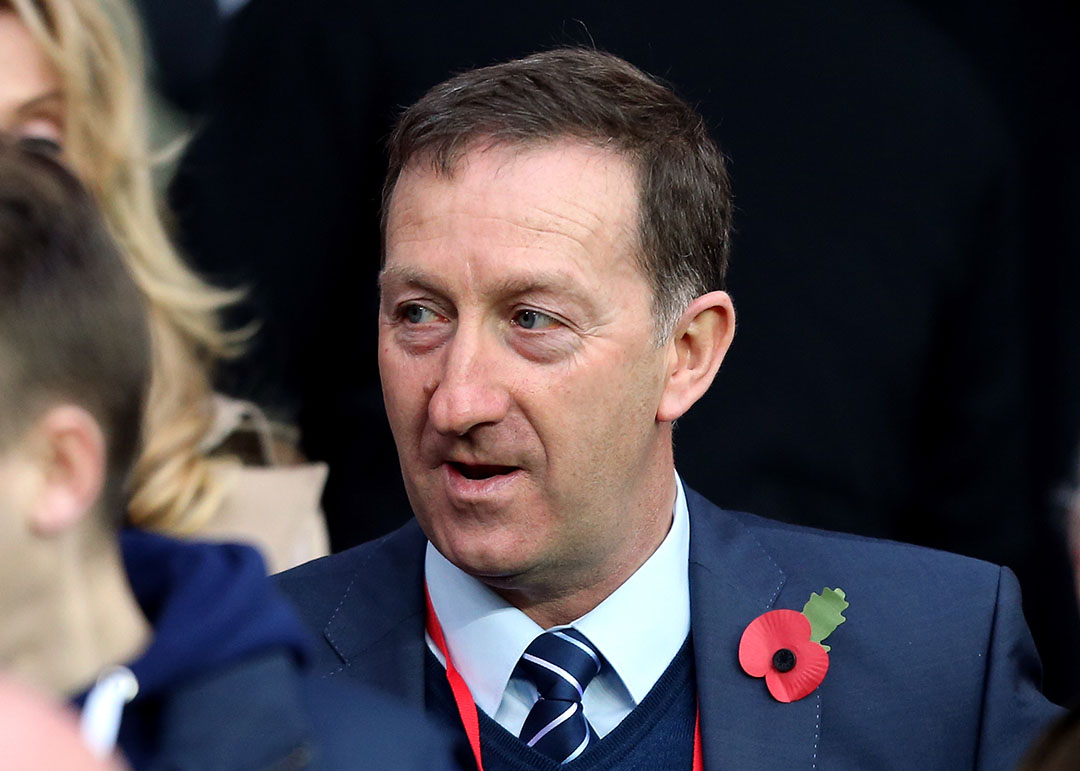
And yet, for all Monk’s achievement, there remains a rather substantial problem in assessing him. He’s good at his job. But are we able to gauge exactly how good? The difficulty quickly becomes apparent upon a quick look back over Monk’s predecessors – all of whom were headhunted to bigger jobs.
Get FourFourTwo Newsletter
The best features, fun and footballing quizzes, straight to your inbox every week.
Success at Swansea, struggles elsewhere?
The chain begins with Roberto Martinez. Upon taking over at Swansea in 2007, the Spaniard took the club from the third tier to the upper echelons of the second in the space of two years, ushering in the possession-centric brand of football that was for a long time known, semi-jokingly, as Swansealona.
After leaving the Liberty Stadium, Martinez spent four years flittering around the Premier League’s lower regions with Wigan, eventually succumbing to relegation in the same season that the FA Cup was memorably won. Of his two seasons at Everton thus far, one has been rampant, one hugely underwhelming.
Martinez’s successor was Paulo Sousa, whose lone season was spent shoring up a porous backline to go one better than Martinez in the final standings, despite just missing out on a play-off place.
Sousa’s managerial experience before Swansea had consisted of six months treading water at QPR, and upon leaving Wales he endured a disastrous 86-day spell at Leicester, taking the Foxes from fifth in the Championship to rock-bottom before finding qualified success in Hungary, Israel and Switzerland.
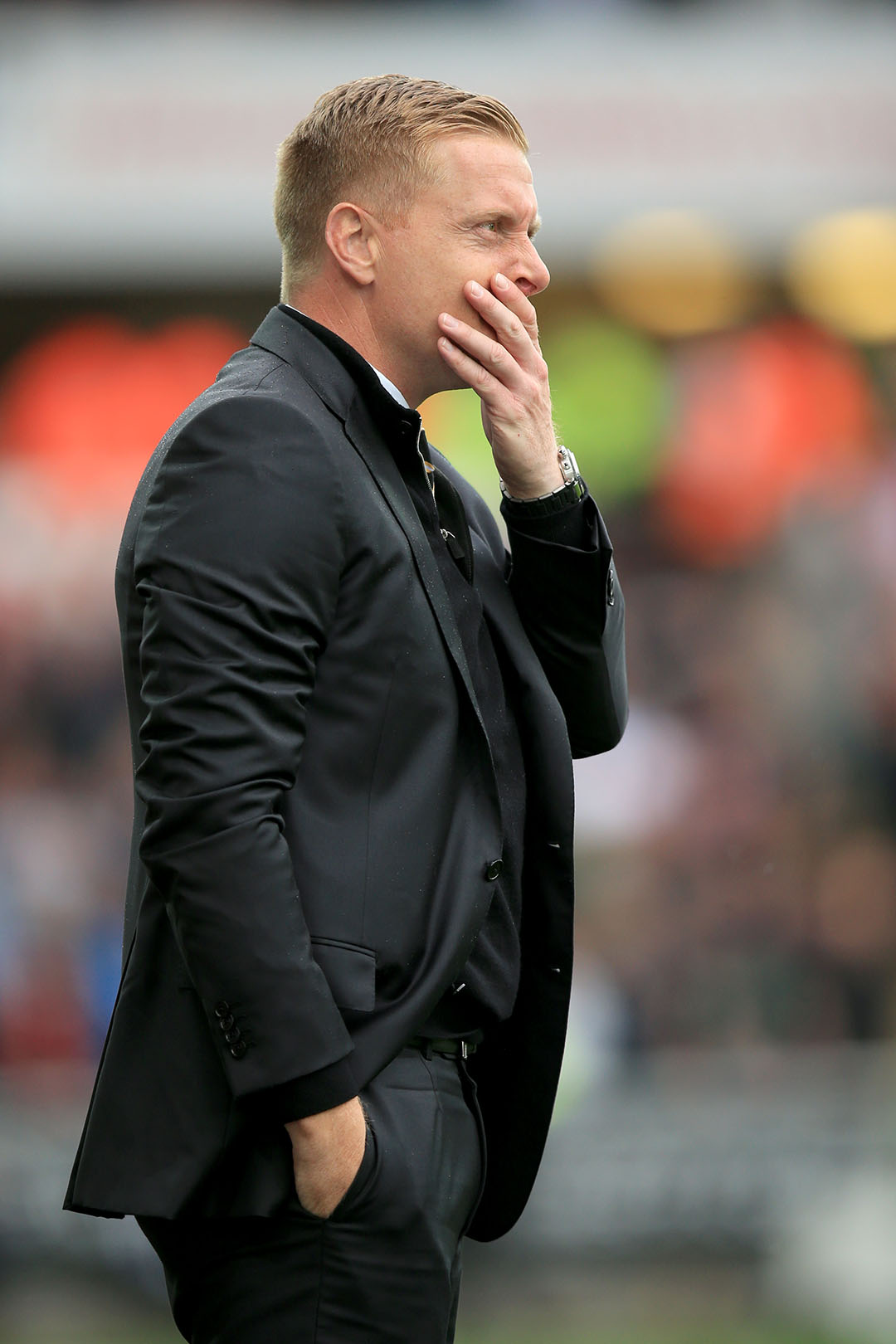
Brendan Rodgers – fresh off the back of wholly nondescript spells at Watford and Reading – took over from Sousa at Swansea and was the grandest success of the lot, slowing the tempo of Swansea’s sometimes-erratic play and duly leading them to the top flight. Once there, he put Liverpool, Manchester City and Arsenal to the sword in a season which garnered an 11th-place finish and the approval of many an onlooking neutral. Most remarkably, he conjured 12 Premier League goals from Danny Graham. Since catching the eye and the employment of Anfield's Boston-based bigwigs, Rodgers’ fortunes have fluctuated with Martinez-like abandon, two seasons of fairly mundanity being punctuated with one campaign of glorious madness. Shankly’s successor or snake-oil salesman? Even within the Kop, no one quite knows.
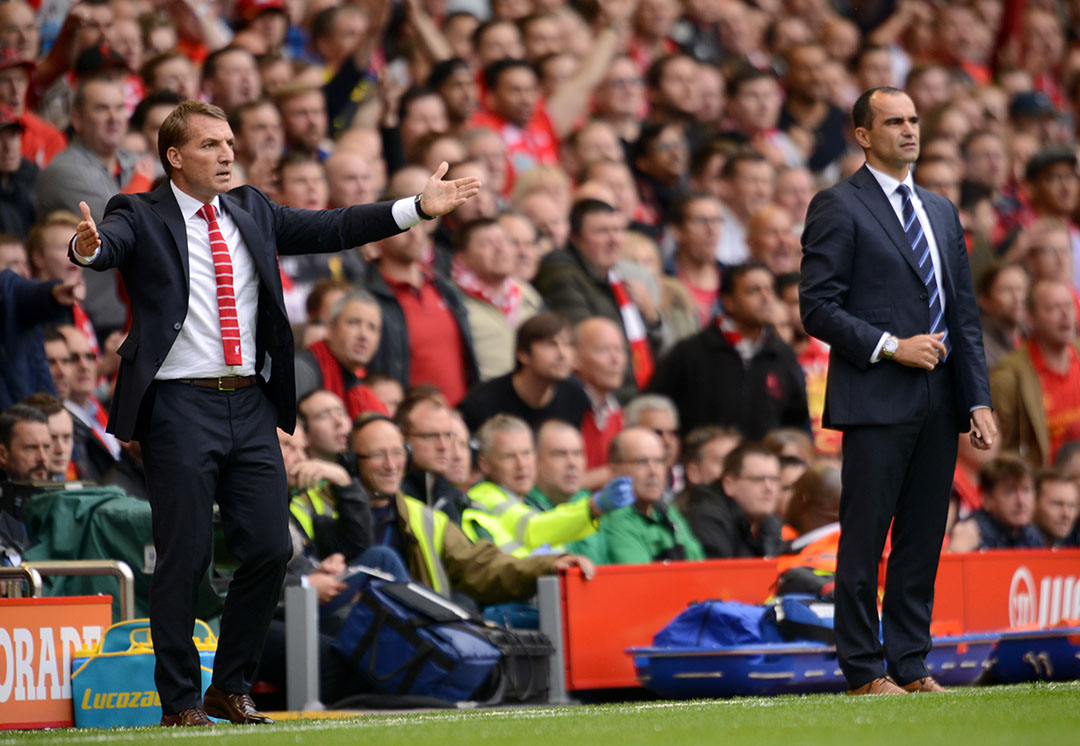
The point is not that these men are anything other than fundamentally good managers – much of Swansea’s success is due to hiring coaches very carefully – but that judging any of them solely on their achievements in South Wales distorts the image, painting them in the very best light possible. Cast a retrospective eye over their Swansea tenures and you’ll soon notice their strengths are magnified while any weaknesses, thrown into a sharper light elsewhere, are kept neatly concealed.
It says a lot that Michael Laudrup is by common consensus the least successful of Swansea’s recent bosses – and the only to have been pink-slipped rather than poached – and yet he took the club to its highest league finish in three decades and to its only ever major trophy. It also says a lot that the collapse of the Laudrup regime did not equal disaster for Swansea: they re-appointed sensibly and resumed their upward trajectory.
Coach as custodian
All of which points towards a greater truth which, if we’re honest, we already knew: Swansea’s success is underpinned by measures which far eclipse the identity of the man in the dugout. Just as Brian Cox, Anthony Hopkins and Mads Mikkelsen have each offered their own depictions of Hannibal Lecter’s seductive depravity – all born from the pen of Thomas Harris – so Martinez, Sousa and Rodgers have all tweaked the Swansea source material to their own ends. But, all the while, the bedrock principles have remained constant: technique, assurance and a canny eye for a bargain.
But, all the while, Swansea's bedrock principles have remained constant: technique, assurance and a canny eye for a bargain
The casting of the manager’s role in this way is at odds with how this country likes to perceive it. English football, raised on a steady diet of Shanklys, Cloughs and Fergusons, tends to envisage its managers as autocrats who compromise nothing in their quest to chisel a club in their own image. Swansea espouse the opposite: the coach as custodian rather than controller. As Sousa says: “All of the managers who have worked under [Swansea chairman] Huw Jenkins have had a similar approach.” With the lifespan of a top-flight manager currently standing marginally above a housefly (0.95 years, discounting the wild outlier of Arsene Wenger), it’s an eminently sensible modus operandi.
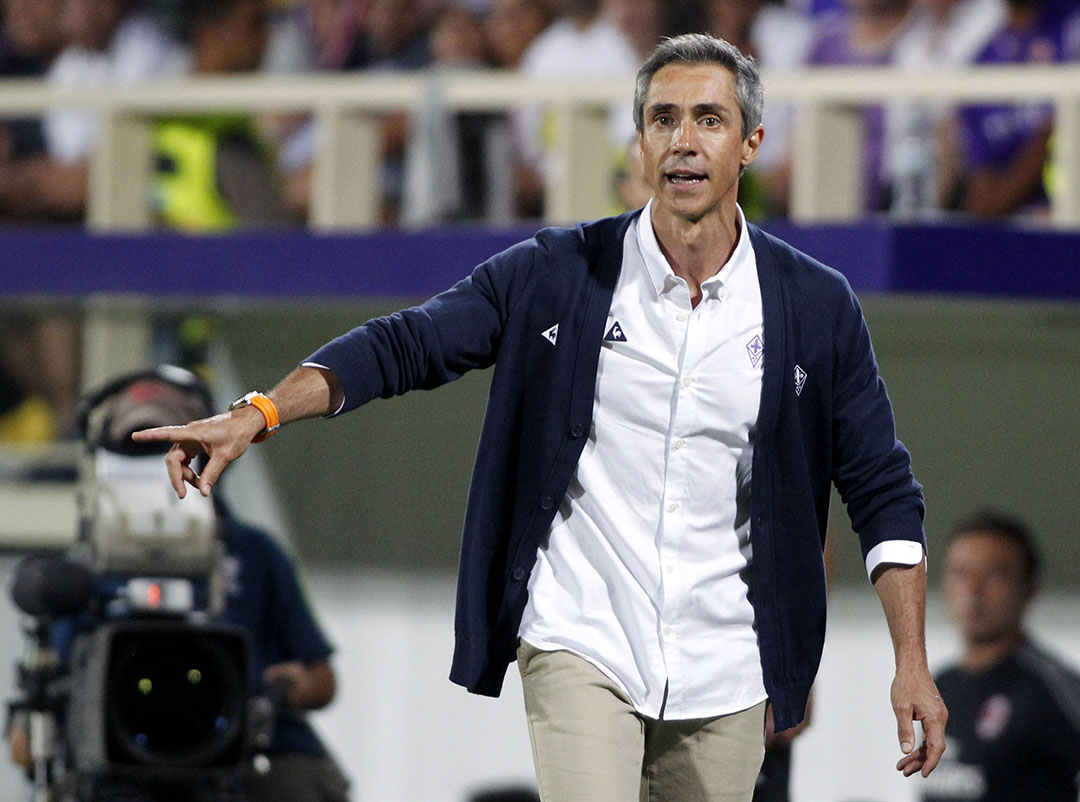
Which brings us back to Monk. The 36-year-old has already well exceeded this life expectancy and the likelihood is that he will continue to do so until he chooses to take his talents elsewhere, on his terms. But it’s not just clubs with one eye on their next managerial recruit that could glean something from a glance at Monk and Swansea right now. Ironically enough, Monk’s excellence may in fact be proof of excellence that runs beyond himself. These days, the autocratic manager is the outlier – and when it comes to running a club, process is infinitely more vital than personnel.
